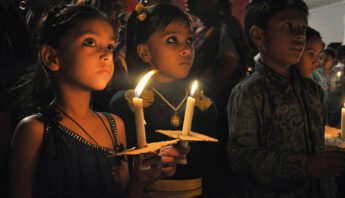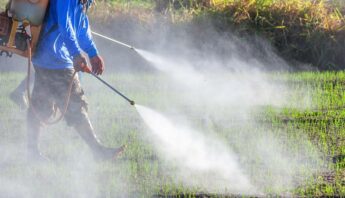Last year marked 30 years since the Bhopal disaster in India, a huge explosion at a pesticide plant that killed thousands of nearby residents and injured hundreds of thousands more.
Last year marked 30 years since the Bhopal disaster in India, a huge explosion at a pesticide plant that killed thousands of nearby residents and injured hundreds of thousands more. Each year on December 3, PAN International marks the day with International Day of No Pesticide Use to remember all the people harmed in Bhopal — and to highlight our vision of a global food and farming system that doesn’t rely on dangerous chemicals.
This year, PAN centers and allies around the globe marked the day with a range of actions — from agroecology education campaigns in Senegal to community outreach to government representatives in Chile and a social media campaign around the “Terrible 20” child-harming pesticides led by our partners in Asia. Our partners at PAN-UK are launching a new video on agroecological practices for growing coffee to mark the day.
All this to pressure governments around the world to take action on highly hazardous pesticides — or “HHPs” — known to harm human health and the environment.
Focus on children’s health
At PAN North America we’re working to protect children from exposure to HHPs. Just recently, as a result of years of work by PAN and our allies, EPA announced its plans to ban the brain-harming pesticide chlorpyrifos nationally in 2016. Ironically, this chemical is manufactured by Dow AgroSciences, the corporation responsible for the Bhopal disaster which has continued to profit globally from pesticide sales — without any consequences for the 1984 event.
The chlorpyrifos phaseout is a great step forward, though Dow will undoubtedly push back and we’ll need to work hard to get a full ban to the finish line. And it’s frustrating that it took years and years of work to win this action, despite very strong science about the hazards of chlorpyrifos to children’s health.
In California we’re now focusing on ensuring that California’s Department of Pesticide Regulation (DPR) puts strong rules in place to curb the use of HHPs near schools in the state. A report out just today from UC Berkeley underscores the urgency of this campaign — it showed that children with organophosphate pesticides in their bodies can have lung damage equivalent to exposure to second-hand cigarette smoke. Here’s the experience of one teacher who teaches at a California school where children are regularly exposed to harmful pesticides. This is a problem.
If you’re a parent of California school kids or a concerned community member you can help us in pressuring the DPR so that they put in place the best possible regulations to protect kids from hazardous pesticides, while helping farmers take innovative steps to remain profitable in the state. Here’s a toolkit that can help you get started.
In Hawai’i we’ve been working with community groups to ensure that pesticide drift from agricultural fields does not harm communities and kids. The campaign is heating up, and the momentum on the ground and the energy and leadership that communities in Hawai’I bring to this work is exciting! Similar campaigns to protect communities from pesticides are active in Iowa and Minnesota.
Highly Hazardous Pesticides
All this work ties up with the global PAN campaign to phase out HHPs — pesticides that are acutely toxic to humans or which cause cancer, reproductive harm, disrupt the hormone system or cause neurological or developmental damage in humans. PAN international’s list of HHPs also includes pesticides that harm pollinators or are very persistent in the environment or toxic to aquatic organisms. As Keith Tyrell, executive director of PAN UK says,
Our future and the health of our ecosystem cannot be sacrificed for corporate profits. PAN International is working hard with our partners around the world to ensure that phasing out HHPs remains high on the list of government priorities everywhere. We make sure communities have an active voice in this process of replacing HHPs with agroecology.
We know that a global phase out of HHPs is a tall order, made that much more difficult by corporate greed influencing the decisionmaking process in wide swaths of the world. But PAN International will keep working tirelessly towards our goal. Our children, farmworkers, farmers and the environment deserve a world with no more tragedies like Bhopal.







